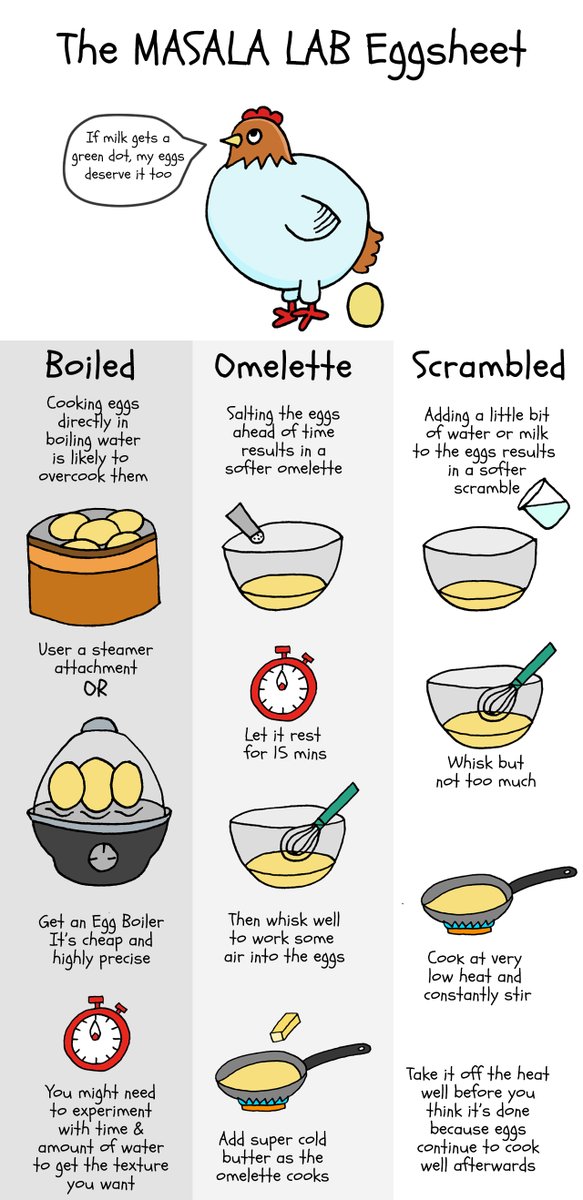
I've started writing a column on food science for @Mint_Lounge and the first one is about the science of gluten and how to reliably make soft chapathi and fluffy poori
PS: It also features illustrations drawn by me lifestyle.livemint.com/food/cook/the-…
PS: It also features illustrations drawn by me lifestyle.livemint.com/food/cook/the-…
Episode 2 of my Masala Lab column for @Mint_Lounge explores the versatility of the much maligned refined wheat flour - Maida (and because it’s so versatile, it gets 2 illustrations) lifestyle.livemint.com/food/discover/…
Here is the illustration for Atta for those who can't see the images from their mobile phones
PS: Hydration % varies by brand of atta, humidity, temperature etc. If you are new to cooking, please use this as a starting point & adjust up or down based on how your breads turn out
PS: Hydration % varies by brand of atta, humidity, temperature etc. If you are new to cooking, please use this as a starting point & adjust up or down based on how your breads turn out

Episode 3 of my column for @Mint_Lounge - The failproof science of cooking eggs lifestyle.livemint.com/food/discover/…
Episode 4 of my column for @Mint_Lounge on the science of rice with an illustration on the fail-proof way to cook rice to a perfectly fluffy texture every single time. lifestyle.livemint.com/food/discover/…
Episode 5 of my column for @Mint_Lounge on the science of legumes (dal, beans, rajma etc) lifestyle.livemint.com/food/discover/…
Here is a fantastic thread that describes the absolute best possible way to ultra-slow-cook whole urad dal into the amaklamatic mouthmeltingly silky Dal Bukhara
https://twitter.com/hganjoo153/status/1333944520094969858
And Episode 6 of my Masala Lab column for @Mint_Lounge spares you the science illustrations and goes straight to an amaklamatically boozy Kerala Christmas cake lifestyle.livemint.com/food/cook/let-…
cc @Poojaspillai 😁
Episode 7 of my Masala Lab column for @Mint_Lounge focuses on why almost every dish in this part of the world starts with spices being bloomed in hot fats lifestyle.livemint.com/food/discover/…
Episode 8 of my column for @Mint_Lounge on the science of fermentation and why we must let friendly bacteria and fungi do most of the hard work of flavour development more often lifestyle.livemint.com/food/discover/… (click on the illustration at the end of the article to expand it)
• • •
Missing some Tweet in this thread? You can try to
force a refresh






